Here's how to assign a keyword to a search engine in Microsoft Edge. In Microsoft Edge, the address bar can handle both search queries and website addresses. By default, the browser uses Bing, but users can change the search engine in Microsoft Edge at any time. Moreover, you can add several engines and quickly switch between them using a unique keyword. This feature eliminates the need to open the search engine website in a tab, or change the browser's settings each time you want to use a different search provider.
Advertisеment
The browser automatically assigns a new keyword every time you add a new search engine. Still, this implementation is a bit wacky because it is hard to call an alias "google.com" a convenient and quick to type keyword. This article will tell you how to assign a custom keyword for search engines in Microsoft Edge.
Assign Keyword to Search Engine in Microsoft Edge
- Launch Microsoft Edge
- Press Alt + F to open Edge's main menu, and select the Settings option.
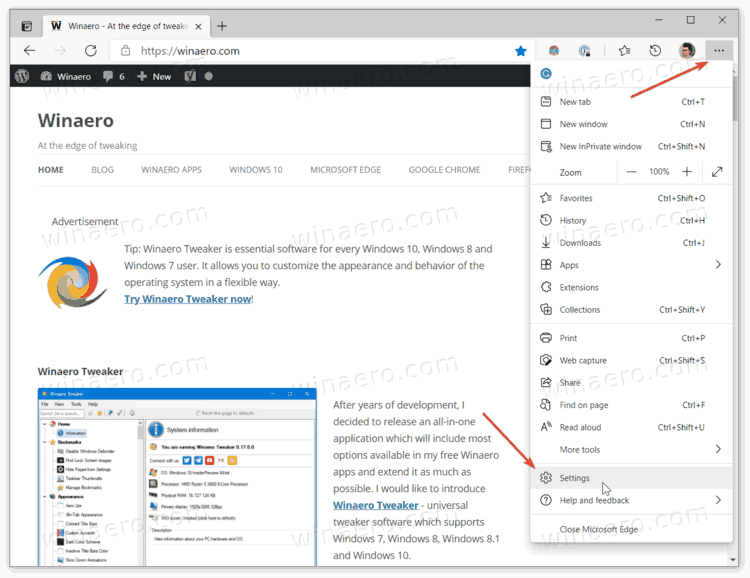
- Click on Privacy, Search, and Services on the left. On the right, click on Address Bar and Search.
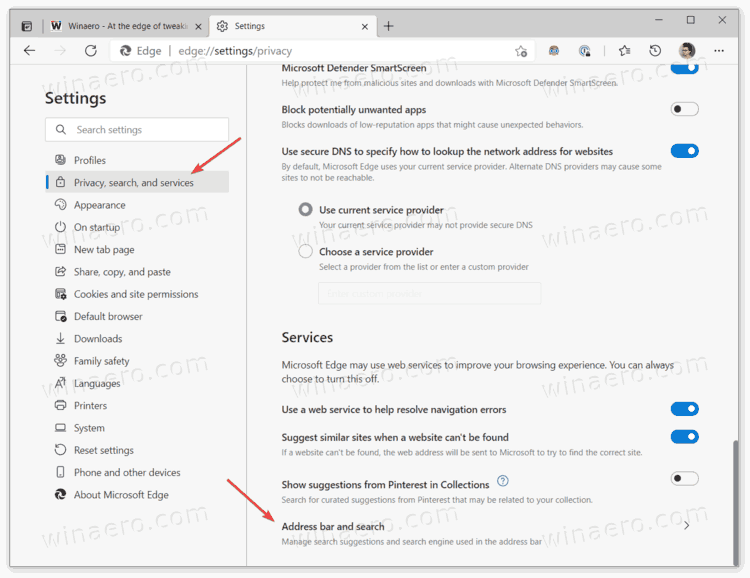
- Click on the Manage Search Engines button. Alternatively, you can type
edge://settings/searchEnginesto open the required page directly.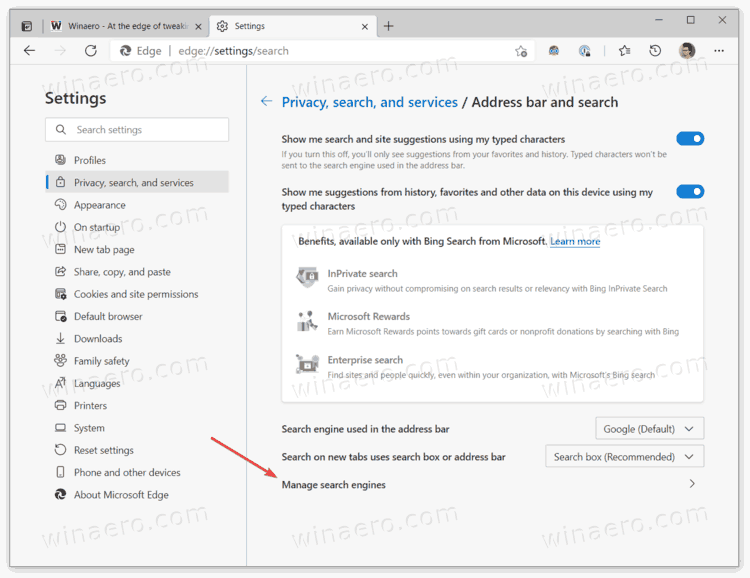
- In the Search Engine list, locate the search service you want to assign a keyword to. Click the three-dot button next to the search engine row.
- Select Edit from the menu.
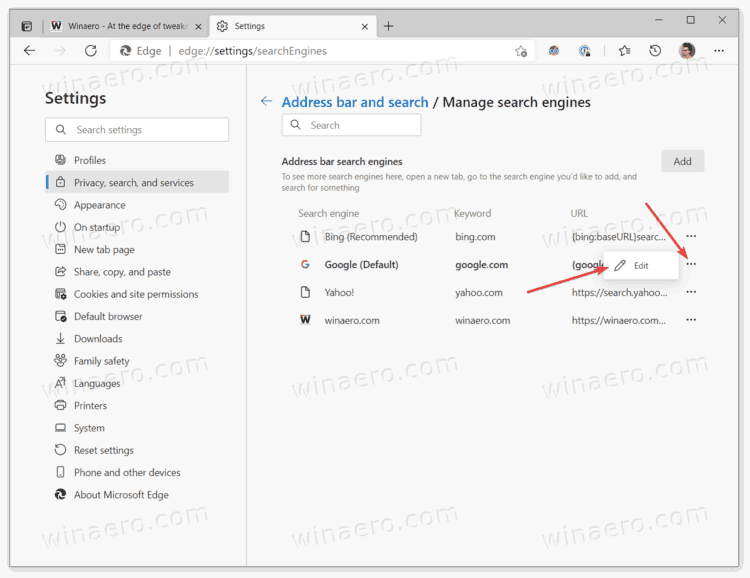
- Type a new keyword into the Keyword field.
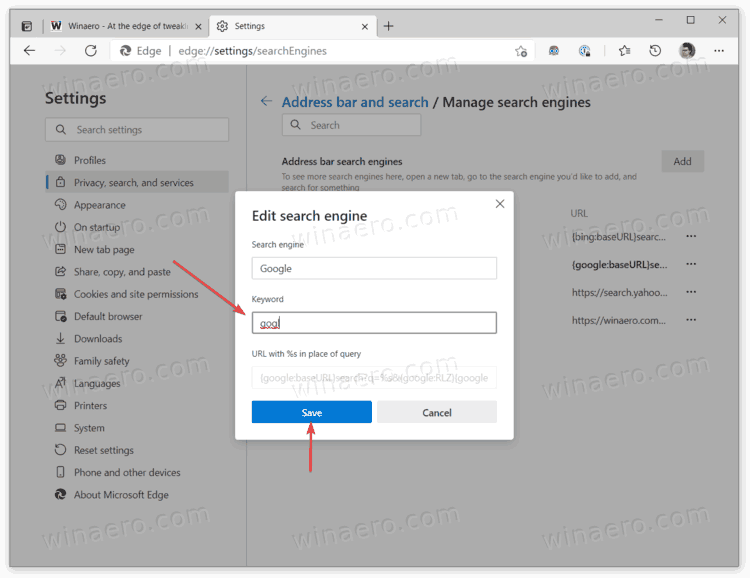
- Click the Save button.
You are done!
Now, you can quickly switch the address bar's search engine to another one using a newly assign keyword.
We recommend assigning unique and short keywords that you do not use in your search queries; otherwise, they will clash with Edge's settings. Suppose you set the "duck" keyword for duckduckgo.com. Whenever you enter "duck" into the address bar, the browser will switch the default engine to DuckDuckGo. Microsoft is working on fixing this inconvenience by introducing a double-space to change the search engine in Edge. Currently, this feature is available as an experimental flag only in Edge Canary.
Here are some examples of keywords you can assign:
-
bngfor Bing, -
gglfor Google, -
ddgfor DuckDuckGo, etc.
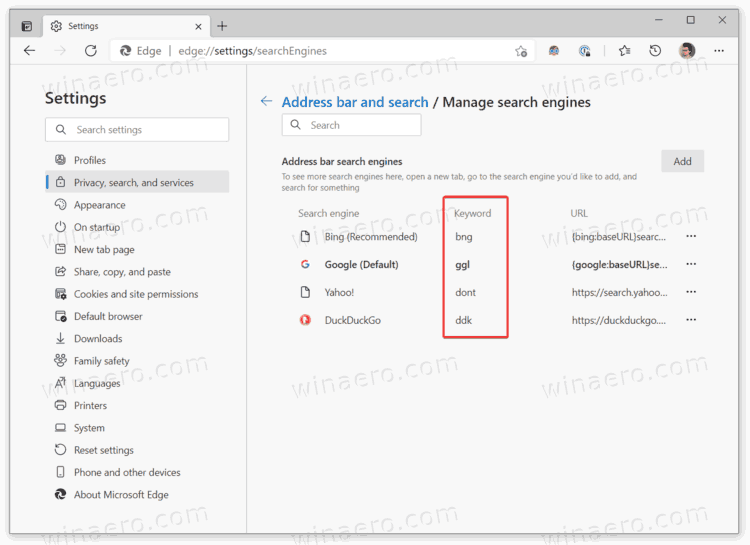
Note: If the required search engine is missing in the list of search engines, it is easy to add it. Open the desired search engine in a new tab in the Edge browser, for example, duckduckgo.com. Now open a new tab, and type edge://settings/searchEngines in the address bar. You will see that the browser will automatically fetch all the needed data to populate its settings with a new service.
These abbreviations will help you quickly switch to the required search engine without any confusion. Finally, here is an example of how keywords work in Microsoft Edge:
That's it.
Support us
Winaero greatly relies on your support. You can help the site keep bringing you interesting and useful content and software by using these options:

This feature works with problems: once after one space, second after two space. It also working without the flag.
Hello, I have been using this feaure extensively and have hundreds of search engines/keywords configured for all sorts of things (i.e. search history, gmail, google/onedrive, github repos, etc.). My question is how i can locate the exact location of the “database” file stored within %LOCALAPPDATA%\Microsoft\Microsoft\Edge (dev/SxS/etc)\User Data\Default so that I may back these up for future use across browsers and computers seemlessly.
So far I was able to find the file in past versions somewhere and used DB SQLite Browser to extract them into a CSV.
Any input would be appreciated!!